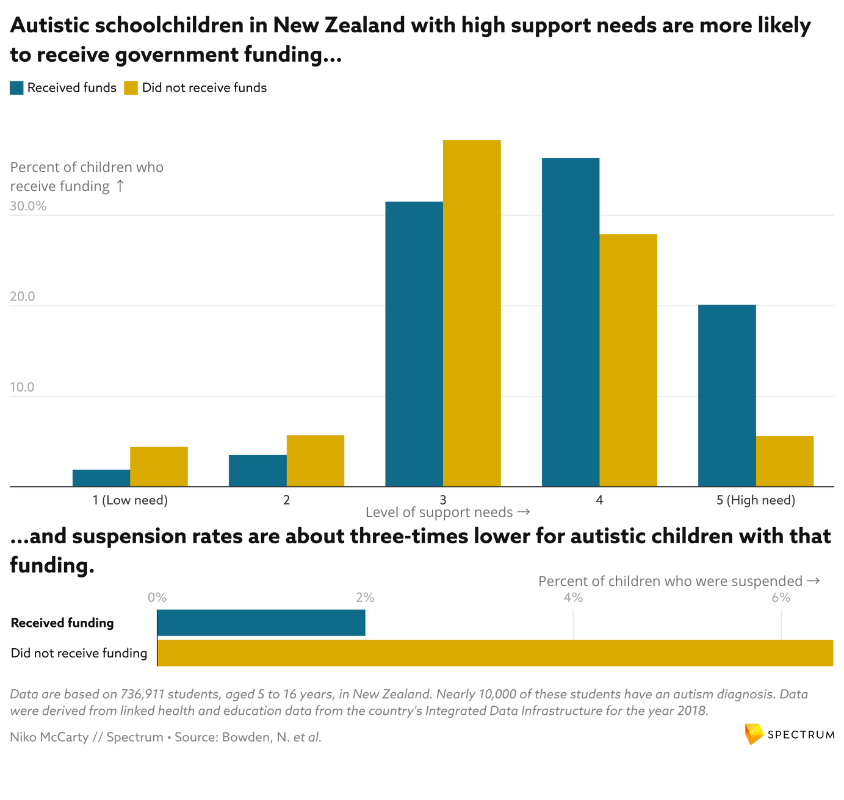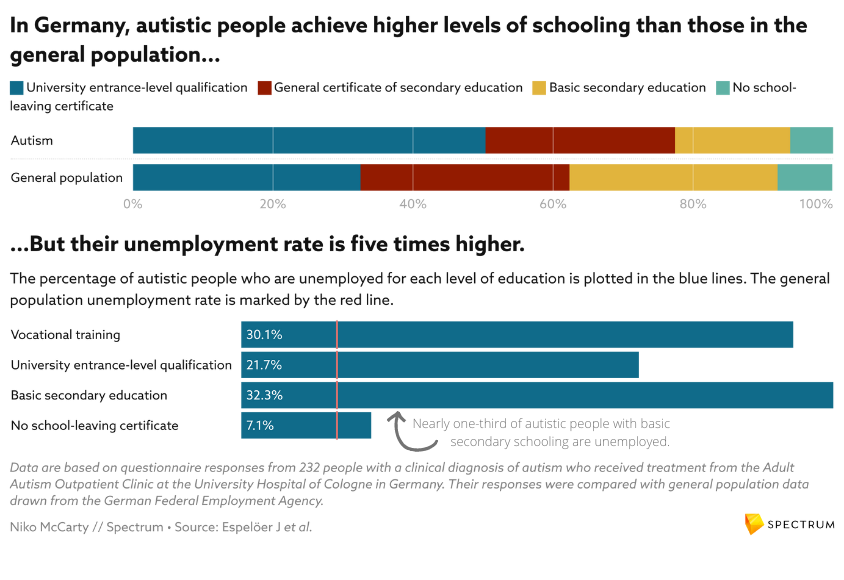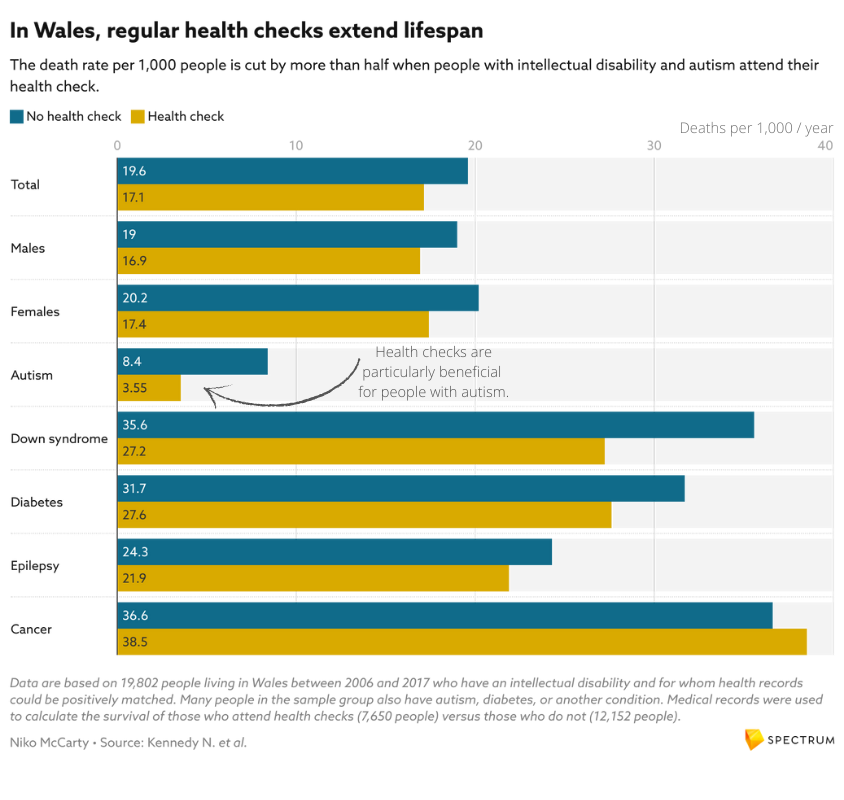Welcome back to By the Numbers. Last week, I was in Austin, Texas, for the annual meeting of the International Society for Autism Research. It was thought-provoking — therapeutic, even — to attend talks and wade through rows of posters laden with numbers. And it made me think about how I can better share data and tell stories in this newsletter.
Reach out with feedback and send questions to [email protected]. Thanks for reading.

About 1 percent of schoolchildren in New Zealand receive funding from the government to help support their complex educational needs and to pay for teaching aides and specialists. Many of these children have autism. The higher a child’s level of need, the more likely they are to receive this money — about $15,000 per student, on average. Access to such funds also slashes the chances that an autistic student will be suspended from school, according to a study published in JAMA Pediatrics in May.

About half of autistic people in Germany — based on survey responses from a sample of 232 people with the condition — have completed schooling up to the university level. That fraction is about 18 percent higher than for those in the general population. But despite higher education, one-quarter of autistic people in the country had been unemployed for an average duration of 23 months. The results were published in the European Archives of Psychiatry and Clinical Neuroscience in May.

Wales offers free health checks to adults with intellectual disability, but about 71 percent of people who qualify have not attended, according to a study published in BMJ Open in April. Those with intellectual disability and autism who did attend health checks between 2005 and 2017 saw their mortality rate cut by more than half.
Follow us on Facebook, Twitter (@Spectrum), Instagram and LinkedIn.





